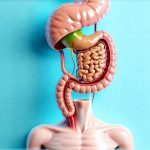The human digestive system is a remarkably resilient – yet surprisingly delicate – orchestration of processes. It operates on inherent rhythms, influenced by everything from our circadian clocks to the types of food we consume. These internal timings dictate not just when we feel hungry, but also how efficiently we break down and absorb nutrients. During periods of extreme heat, such as those experienced in increasingly frequent and intense heatwaves, these carefully balanced digestive rhythms can be significantly disrupted, leading to a range of uncomfortable – and sometimes concerning – symptoms. Understanding why this happens, and what steps we can take to mitigate the effects, is crucial for maintaining overall wellbeing during summer months.
Heatwaves present a unique physiological challenge because our bodies prioritize maintaining core temperature above many other functions. A significant portion of energy expenditure shifts towards thermoregulation—cooling mechanisms like sweating—which directly impacts digestive processes. Blood flow redirects away from the gastrointestinal tract and toward the skin, reducing the efficiency of digestion and absorption. This isn’t merely a matter of discomfort; it can impact nutrient uptake, exacerbate existing digestive issues, and even influence our energy levels and mood. The interplay between heat stress, hydration status, and gut function is complex and deserves close attention as global temperatures continue to rise.
Heatwave-Induced Digestive Slowdown
The most common consequence of heat exposure on the digestive system is a marked slowdown in motility – the movement of food through the digestive tract. This isn’t always immediately noticeable, but it can manifest as bloating, constipation, and a general feeling of sluggishness. Several factors contribute to this deceleration:
– Reduced Blood Flow: As mentioned previously, blood flow is diverted from internal organs towards the periphery to facilitate cooling. The gut needs adequate blood supply for proper function, so diminishing circulation directly impacts its ability to move food along effectively.
– Dehydration: Heatwaves often lead to dehydration as we lose fluids through sweat. Water is essential for digestive processes and maintaining stool softness. Insufficient hydration further exacerbates constipation and slows down the entire system.
– Vagal Nerve Inhibition: The vagus nerve plays a crucial role in regulating digestion, controlling muscle contractions that move food along the gut. Heat stress can inhibit vagal nerve activity, contributing to slower motility.
This slowdown isn’t just about timing; it affects the digestive environment itself. When food remains in the colon for longer periods, it increases the risk of bacterial fermentation, potentially leading to gas and bloating. It also reduces the efficiency with which nutrients are absorbed, meaning even a healthy diet may not provide optimal nourishment during extreme heat. The body’s attempt at cooling prioritizes survival mechanisms, often sacrificing digestive efficiency as a result.
Furthermore, the type of food we consume plays a role. Heavy, processed foods require more digestive effort and can exacerbate the slowdown effect. Conversely, lighter, easily digestible options are better tolerated when the gut is already under stress. It’s also important to consider that changes in appetite are common during heatwaves; people often experience reduced hunger, which can further disrupt normal eating patterns and contribute to digestive imbalances. If you suspect a serious condition, consider recognizing signs.
Hydration & Gut Microbiome Impact
Maintaining adequate hydration isn’t simply about drinking enough water – it’s about how we hydrate and the impact on the gut microbiome. The gut microbiome – the community of trillions of bacteria residing in our intestines – is incredibly sensitive to changes in fluid balance, temperature, and diet. Heatwaves can disrupt this delicate ecosystem, leading to dysbiosis (an imbalance in gut bacteria).
- Electrolyte Imbalance: Sweating depletes electrolytes like sodium, potassium, and magnesium, all vital for proper digestive function and nerve transmission within the gut. Replenishing these electrolytes is crucial for maintaining optimal motility. Plain water alone isn’t always sufficient; electrolyte-rich beverages or foods are preferred.
- Microbiome Shift: Dehydration can alter the composition of the gut microbiome, favoring less beneficial bacteria and potentially reducing overall diversity. This shift can impact digestion, immunity, and even mental wellbeing. A healthy, diverse microbiome is better equipped to handle stress and maintain digestive stability.
The connection between hydration and the gut microbiome extends beyond mere fluid intake. Certain foods can promote a healthier microbiome while providing hydration. For example, watermelon, cucumbers, and berries are all hydrating and contain prebiotic fibers that nourish beneficial bacteria. Conversely, sugary drinks and highly processed foods can further disrupt the microbiome and worsen digestive symptoms. Prioritizing probiotic-rich fermented foods like yogurt or kefir (if tolerated) during heatwaves can also help support a healthy gut ecosystem. It’s often helpful to understand digestive habits during times of stress.
Managing Digestive Discomfort During Heatwaves
When digestive rhythm loss occurs, proactive management is key to minimizing discomfort and restoring balance. This involves a multi-faceted approach encompassing dietary adjustments, hydration strategies, and lifestyle modifications:
– Dietary Focus: Opt for light, easily digestible foods such as steamed vegetables, broth-based soups, and lean proteins. Avoid heavy, greasy, or processed foods that put extra strain on the digestive system. Smaller, more frequent meals can also be easier to tolerate than large portions.
– Hydration Protocol: Aim for consistent fluid intake throughout the day, prioritizing water and electrolyte-rich beverages. Monitor your urine color – pale yellow indicates adequate hydration. Avoid excessive caffeine or alcohol, as these can dehydrate you further.
Beyond diet and hydration, managing stress levels is also crucial. Stress can significantly impact digestive function, exacerbating symptoms of bloating and constipation. Practices like mindfulness, meditation, or gentle exercise (avoiding strenuous activity during peak heat) can help reduce stress and promote gut health. Regular, gentle movement encourages peristalsis – the wave-like muscle contractions that move food through the digestive tract. If discomfort persists or worsens, consulting a healthcare professional is always recommended to rule out any underlying medical conditions. It’s also important to watch for checkpoints during symptom progression.
The Role of Fiber & Prebiotics
Fiber plays an indispensable role in maintaining healthy digestion, even—and especially—during heatwaves. While it might seem counterintuitive to increase fiber intake when experiencing constipation, the right type of fiber can actually help alleviate the problem. Soluble fiber, found in foods like oats, apples, and beans, absorbs water, softening stool and making it easier to pass. Insoluble fiber adds bulk to stool, promoting regular bowel movements.
However, increasing fiber intake without adequate hydration can worsen constipation, so it’s essential to maintain a balanced approach. Prebiotics – non-digestible fibers that feed beneficial gut bacteria – are also incredibly valuable during this time. Foods rich in prebiotics include garlic, onions, bananas, and asparagus. By nourishing the microbiome, prebiotics help restore digestive balance and improve overall gut health. Supporting digestive calm is important for all ages.
It’s important to introduce fiber gradually to avoid bloating or gas. Start with small amounts and increase intake slowly as your body adjusts. Combining fiber-rich foods with sufficient water intake is paramount for maximizing their benefits. Consider incorporating fermented foods alongside these dietary changes to further support a thriving gut microbiome.
Recognizing When to Seek Professional Advice
While many cases of digestive rhythm loss during heatwaves can be managed with lifestyle adjustments, it’s crucial to recognize when professional medical advice is needed. Persistent or severe symptoms should never be ignored.
– Severe Constipation: If constipation lasts for more than a week despite dietary and hydration changes, seek medical attention.
– Persistent Diarrhea: Prolonged diarrhea can lead to dehydration and electrolyte imbalance, requiring medical intervention.
– Abdominal Pain: Severe or worsening abdominal pain could indicate a more serious underlying condition.
– Bloody Stool: The presence of blood in the stool is always a cause for concern and requires immediate medical evaluation.
These symptoms may signal an underlying issue beyond heatwave-induced digestive disruption, such as irritable bowel syndrome (IBS), inflammatory bowel disease (IBD), or food intolerance. A healthcare professional can accurately diagnose the problem and recommend appropriate treatment. Never self-diagnose or attempt to treat serious digestive issues without consulting a doctor. Remember that prioritizing proactive care and seeking timely medical attention are essential for maintaining long-term health and wellbeing, especially in the face of increasingly frequent extreme weather events. It may be necessary to undergo digestive tests if symptoms persist.


















